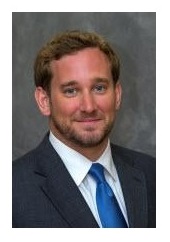Adam Thayer is an attorney with Sayer, Regan & Thayer LLP, of Newport, who specializes in real estate law. He spoke to the Providence Business News this week about Airbnb rentals, and implications for property owners who become hosts.
PBN: Beyond Newport, which towns are most popular for Airbnb?
THAYER: In Portsmouth, the northern portion in particular has a lot of smaller beach homes. In the Aquidneck Island area, and South County, where you have a strong higher education population and a strong seasonal population, the two lend themselves to each other. So, we have very defined rental cycles. You will have people do September to May on a student rental. Then you try to hit the home runs all summer long on these short-term rentals.
PBN: How is that affecting the 12-month rental market?
THAYER: Because so many people try to do that, if you are willing to say, I’m going to do a yearlong rental, there is such a big market for that now, because they are so much harder to come by. That is translating into major issues, in particular, on Aquidneck Island.
PBN: What are the insurance implications for hosts for Airbnb?
THAYER: I have not reviewed their full insurance policies. But in a broader perspective, when I represent a client who has bought a rental property, one of the things I’m asked is “Should I be forming a business entity to have that limit on liability?” The first thing I say is to talk with your [certified public accountant] about tax implications. But aside from that … when someone has, say, one rental property, doing regular rentals, you probably don’t need an LLC. But when you start having more than one, say five, or 10, this might be more of a full-time gig for you, that’s when you get into, “Yes, this makes sense.” If you’re going to operate a business, operate a business. You want a good lawyer. You want a CPA. You want a quality insurance agent.
PBN: On tax liabilities, are the guests paying state sales tax as well as the hotel tax?
THAYER: Yes. When you think about it, we are literally taking people who filled hotels and motels and moving them into private residences.
PBN: How are mortgages affected by this activity?
THAYER: When you get a loan, there are multiple types of loans. If you are getting a residential mortgage, you get a primary residence, a second home, or an investment property. And the interest rates on those vary based on which one you have. A common way someone could attempt to commit mortgage fraud, is, ‘Hey bank, this is going to be my primary residence.’ When they have no intention of living there.
Mary MacDonald is a staff writer for the PBN. Contact her at macdonald@pbn.com.













